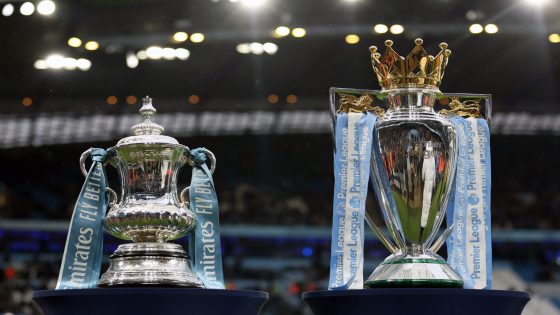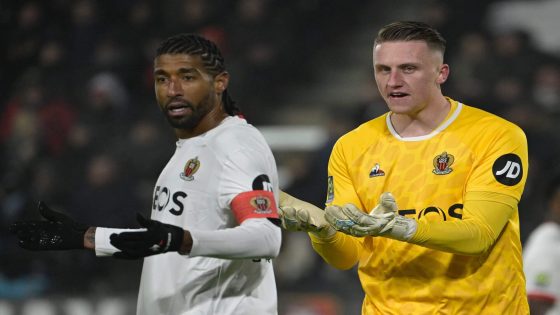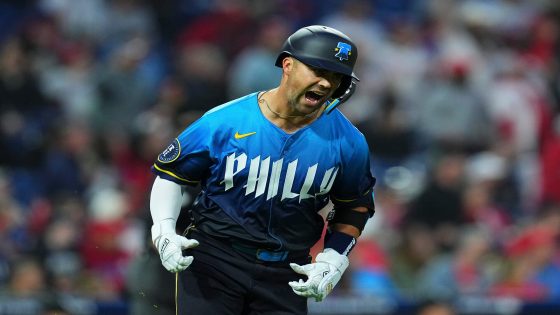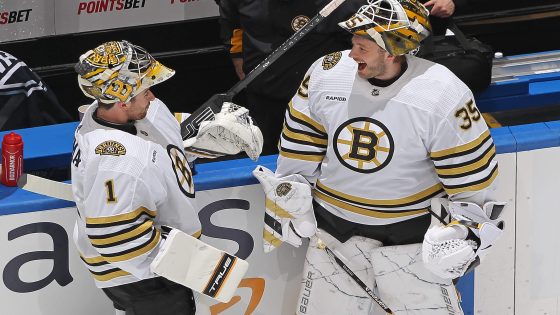Just to keep you on your toes, we are starting this round-up of business-related news stories with an item about the lack of news coming from a club whose relationship with the concept of business is increasingly strained.
For the record, this is week 31 of the 12-week regulatory approval process for American investment firm 777 Partners’ takeover of Everton, which started on September 15, 2023. It is also 31 weeks since anyone involved said anything on the record.
Here is what you did not miss.
777 Partners has still not satisfied the four conditions the Premier League has placed on its approval of the deal: convert £180million ($225m) in recent loans to Everton into equity, put £60million into a ring-fenced account to get the club through the summer, secure about £100million in funding to complete construction of the new stadium and pay off the £158million Everton borrowed from MSP Sports Capital, another U.S.-based investment firm, last year.
That particular loan should have been repaid by 23:59 on Monday but, when the clock struck midnight, the club’s proposed takeover vehicle remained a pumpkin, with any hopes fans had of a change at the top still in tatters.
Everton owner Farhad Moshiri, briefly back in the UK from his Monaco base to meet lawyers and watch Everton get pummelled by Chelsea, did not repay the loan. Neither did 777.
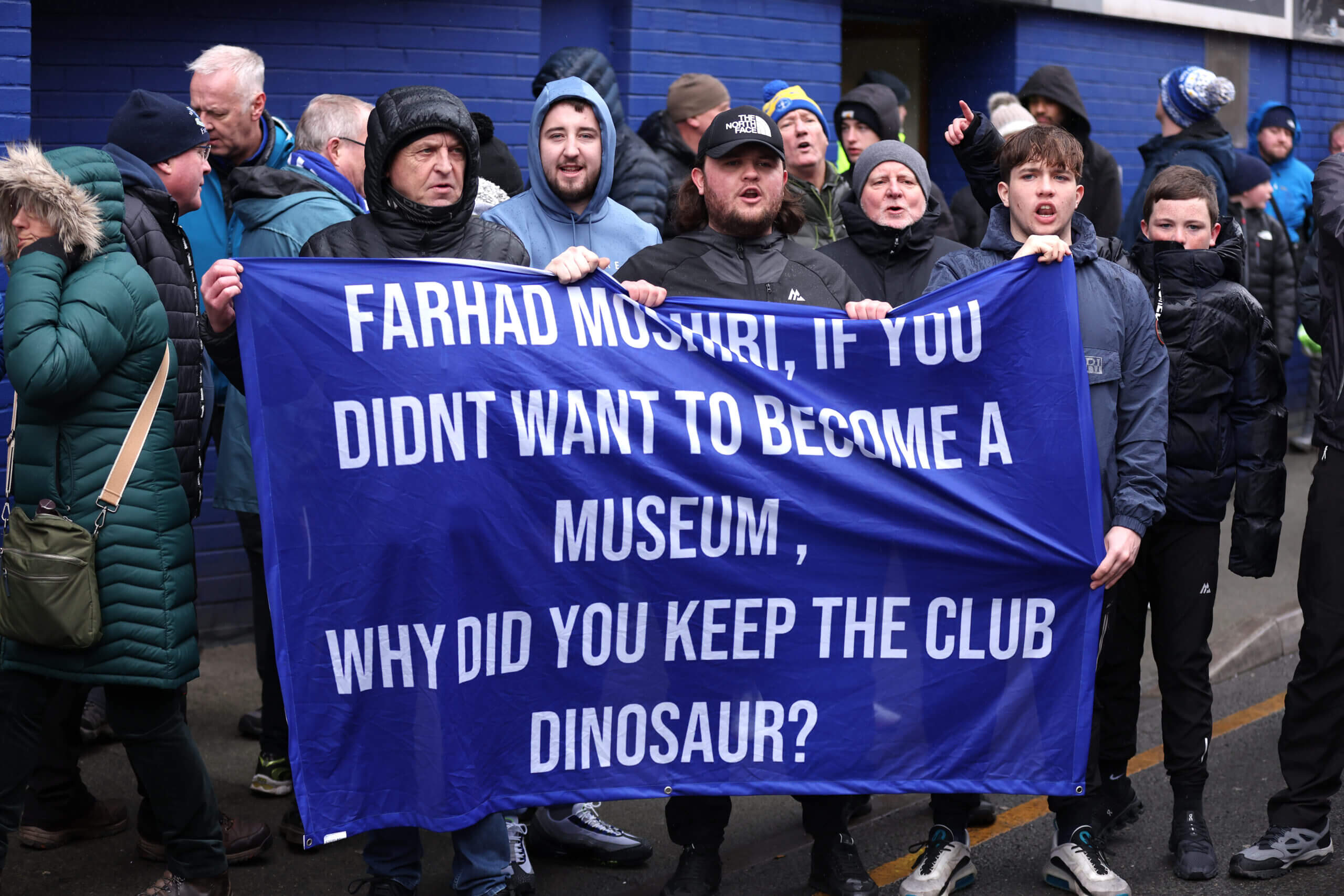
Everton fans protesting against Moshiri in March (Alex Livesey/Getty Images)
Instead, MSP extended the deadline by…. well, nobody is saying, but the hints suggest we are talking weeks, not months, which is the same timescale given for 777’s takeover to be approved. Although that message has been consistent since Christmas.
This unspecified extension, however, did confirm that something else is not going to happen, namely MSP taking control of Everton. It could have done so, if it wanted, as it secured its loan against 50 per cent plus one of Moshiri’s shares in the club, as well as the subsidiary that owns the three-quarters-completed Bramley-Moore Stadium.
So, just to recap, we have an owner who evidently can’t (or won’t) repay the MSP loan, fund construction of the stadium or meet the club’s monthly cash requirements; a would-be buyer that has been trying to rustle up the money required to complete the takeover but has failed to do so; and a creditor that once wanted to own Everton but when presented with the chance to do so, decided it would rather take its chances of getting its money back once the summer transfer window opens.
In the meantime, Everton are mired in a third successive relegation battle, still in dispute with the league about its accounts for last season, and only a clearance sale away from another breach of the league’s spending rules for the current season.
No news is not good news at Goodison.

OK, some actual news, then.
As David Brent might have put it, there is good news and bad news about the FA Cup.
The bad news is replays are being scrapped from the first round onwards, so would-be giant killers from the lower leagues will no longer be able to earn a second money-spinning crack at a bigger club. I know, gutting.
The good news is the cup’s fifth round will once again get a long weekend of its own — like the third and fourth rounds — to fill the schedules and dominate the conversation, with the Premier League also giving the Football Association an extra £33million a year to sprinkle on the grassroots.
So, every cloud… you’re still thinking about the bad news, aren’t you?
For more on the rights and wrongs of this decision, The Athletic has written this piece about the end of replays, but a few details are missing from the joint statement that might help make sense of what appears to be a poor deal for the FA itself and a sell-out of clubs below the Championship.
In defending the agreement with the Premier League, FA boss Mark Bullingham said the FA Cup “is our biggest asset and generates over 60 per cent of our revenue to invest in the game” and this deal will “secure a strong format for the future”.
What he means is that space in the calendar is more precious than spice in Frank Herbert’s Dune, so clearing the weekends in England for the FA Cup’s biggest rounds, in terms of broadcast inventory, is a win. The Premier League is also taking the day off so the FA Cup’s quarter-finals, semi-finals and final have room to breathe. On the flip side, the final has moved to the penultimate weekend of the season, letting the top flight bring the curtain down in England.
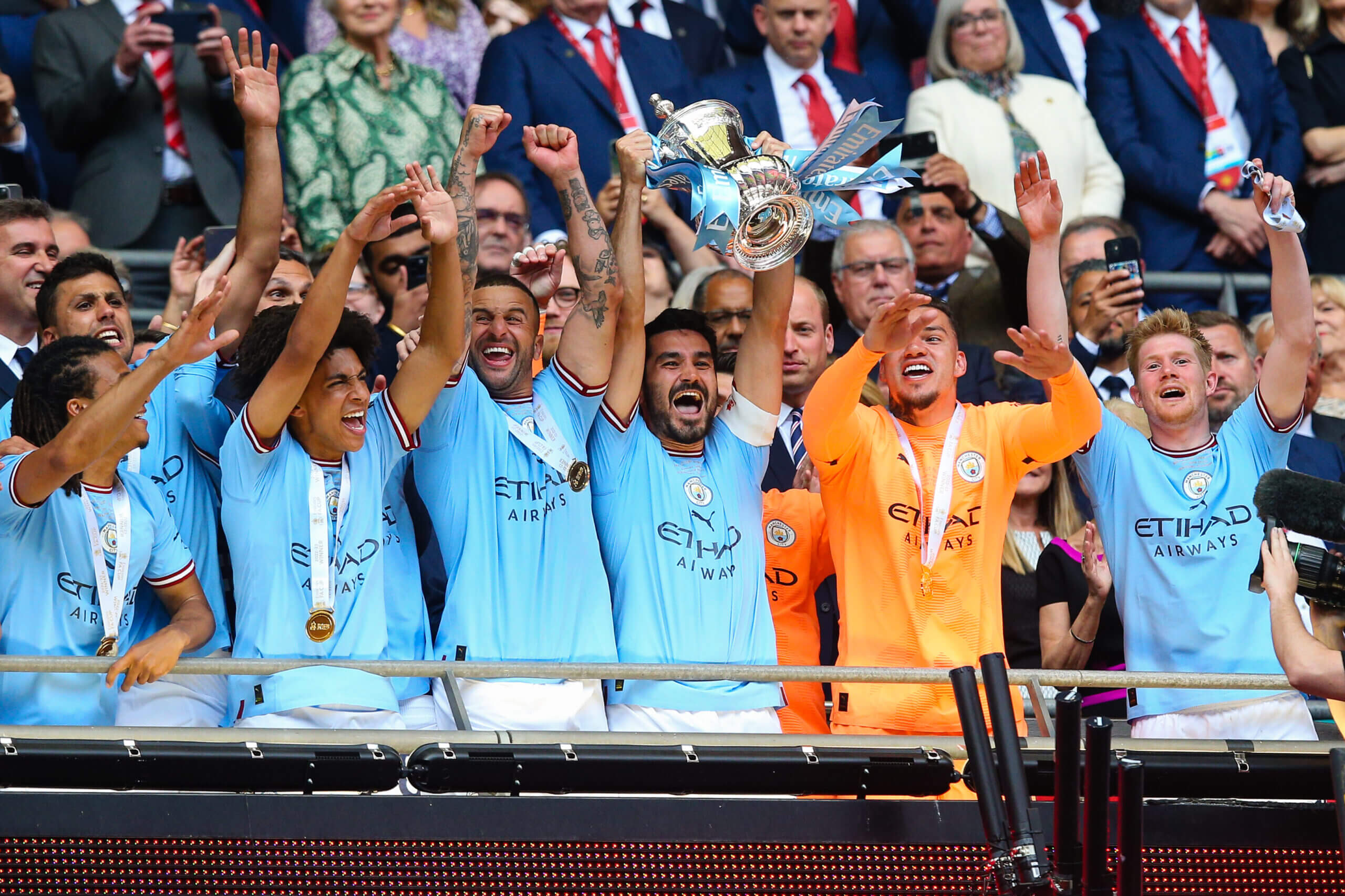
Manchester City lifting last season’s FA Cup on June 3, a week after their final Premier League game (Craig Mercer/MB Media/Getty Images)
But what Bullingham did not say is that the FA needs the Premier League’s help in delivering the full potential of those three rounds of Wednesday-to-Sunday fixtures. The top flight is not just getting out of the way, it is actually selling the FA Cup’s international media rights on behalf of the national governing body. The overseas rights are the FA’s real “biggest assets”, as they are worth significantly more than the £264million the FA has just secured from TNT for four years of UK rights.
So, the price the Premier League has extracted for its help, in terms of scheduling and selling, is scrapping replays, an inconvenience the top clubs have never enjoyed, even before UEFA added two more games (and four exclusive midweek slots) to its competitions and FIFA expanded all of its summer tournaments.
The piece missing from this puzzle is what is in it for the English Football League (the second, third and fourth tiers) and the rest of the pyramid. And that is because this deal was meant to be part of the “new deal for football” that was booted into the weeds at a Premier League shareholders’ meeting last month.
It is not the case that the FA has gone behind the EFL’s back and done some sneaky side deal with the Premier League — it has simply gone ahead with its bit of what was supposed to be a grand treaty between all the stakeholders on the calendar, cost controls and solidarity payments.
EFL chief executive Trevor Birch spelled this out in his reaction to the news, noting that the league had been “involved in discussions over the future of the calendar” but these were “predicated on the agreement of a new financial deal with the Premier League for EFL clubs which has not progressed”.
He described this as “frustrating and disappointing”, saying it “represents another lost traditional revenue stream for EFL clubs” as the financial gap between top and bottom continues to grow.
“We will now be discussing the implications for EFL clubs and seeking appropriate compensation arrangements,” he added.
What he did not say, however, is that the EFL was meant to scrap the two-legged semi-finals for its biggest asset, the EFL Cup, or Carabao Cup, as its sponsors would prefer us to call it. But, with no new deal on the table, the EFL sold the international rights for English football’s second cup competition with the two-legged semi-finals included.
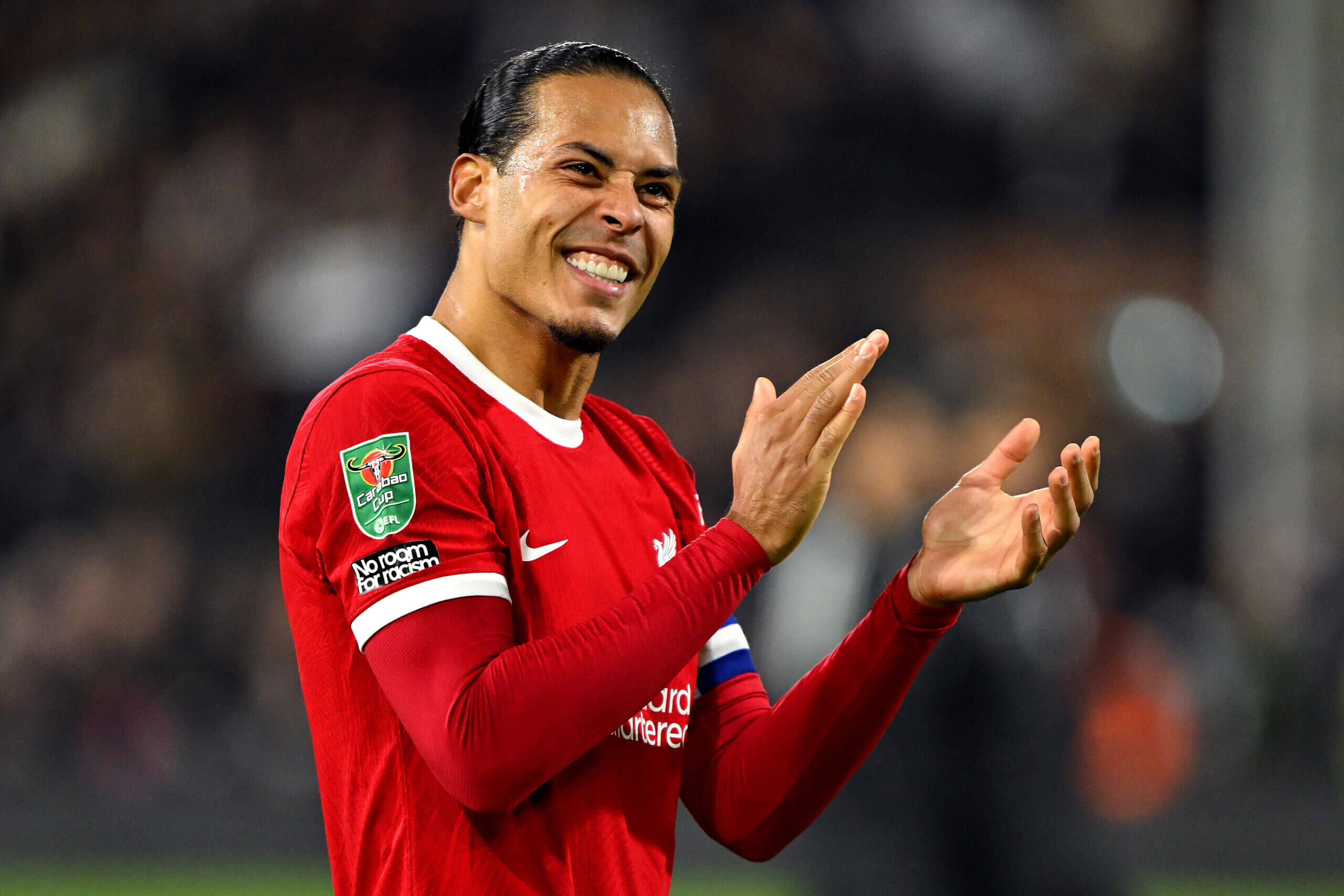
Virgil van Dijk celebrates after Liverpool’s Carabao Cup semi-final second leg against Fulham (Mike Hewitt/Getty Images)
Another compromise is lurking in those weeds and it involves the EFL’s other cup competition, the EFL Trophy, or Bristol Street Motors Trophy, to use its official title.
The EFL invites 16 under-21 teams from Premier League and Championship clubs to take part in a competition set up to give sides in League One and League Two, the third and fourth tiers of English football, more games.
Many fans of EFL clubs are still appalled by this decision, as it looked like an attempt to introduce B teams to the pyramid, something common elsewhere in European football but anathema in England. So, the games are poorly attended until the latter stages, but the Premier League, which wants its youngsters to play older, tougher players, subsidises the competition to make it worth everyone’s while.
Guess what? Those discussions Birch referred to were also about increasing the number of games played in the group stages of the EFL Trophy from three to five and inviting all 20 of the Premier League clubs to take part in the near future.
Oh, and the Premier League is then meant to take responsibility for selling all of English football’s media rights, with the proceeds going into one “net media revenue” bucket from which increased sums can be shared with every level of the game, hopefully providing annual replay-like bonanzas to every club.
The FA, of course, knows this because it has been in the same talks for over a year, which is another reason it felt replays in rounds one and two of the FA Cup were not worth getting into a fight over. Time really is money in today’s game.
Still thinking about the bad news?
What you need is an independent regulator for football — and it is with delicious timing that a job advert for the chair of the incoming regulator appeared on the UK government website on Thursday.
Fancy it?
The post will be based in the “North West”, presumably to create some physical distance between the regulator and the Department for Culture, Media and Sport (DCMS) and not to be close to the Preston headquarters of its biggest supporter, the EFL.
It is a three-day-a-week gig and it will pay £130,000 a year. The term is five years but that can be renewed.
Hold on a minute. If you do not have “a strong understanding of economic and financial regulation”, “a credible understanding of the business of football” (reading this article does not count), a “proven track record” in running things and “experience of dealing with intense public scrutiny”, save yourself an email.
Whoever gets the job — and it is probably going to be a football fan who has either worked for a regulator before or run a business in a heavily regulated sector — will ultimately be a decision for the sports minister and their boss, the secretary of state for DCMS.
But there is also a five-strong advisory assessment panel to help the ministers make the decision. It is chaired by two senior civil servants from DCMS, with healthcare expert Hedley Finn as its senior independent member. Veteran TV executive and life peer Michael Grade and Football Foundation CEO Robert Sullivan complete the quintet.
As a former boss at the BBC, ITV and Channel 4, The Lord Grade of Yarmouth (to give him his full title) might be worth consulting on how to settle an intriguing dispute between the German Football League (DFL) and UK-based sports streaming service DAZN.
It all kicked off when the DFL invited bids this week for the next four-year cycle of domestic rights for the Bundesliga and second-tier 2. Bundesliga.
These rights, like most places, have been separated into packages of varying attractiveness, with some reserved for pay-TV companies and others targeted at free-to-air broadcasters.
DAZN, which has been streaming Bundesliga games in Germany and several other countries since 2021, strongly believes it made the biggest bid for ‘package B’, a large bundle that includes big games on Friday evenings and Saturday afternoons.
The DFL, however, rejected DAZN’s bid, preferring the one from its only real rival in the pay-TV space, Sky Deutschland.
We know this because DAZN’s chief executive Shay Segev wrote a letter moaning about the process to all 36 clubs in Germany’s top two divisions, as well as the DFL.
Segev also claimed that the DFL asked DAZN for a formal bank guarantee to support its bid at the 11th hour, when it was impossible to arrange one, having previously been happy with a “hard letter of comfort” from the streamer’s parent company.
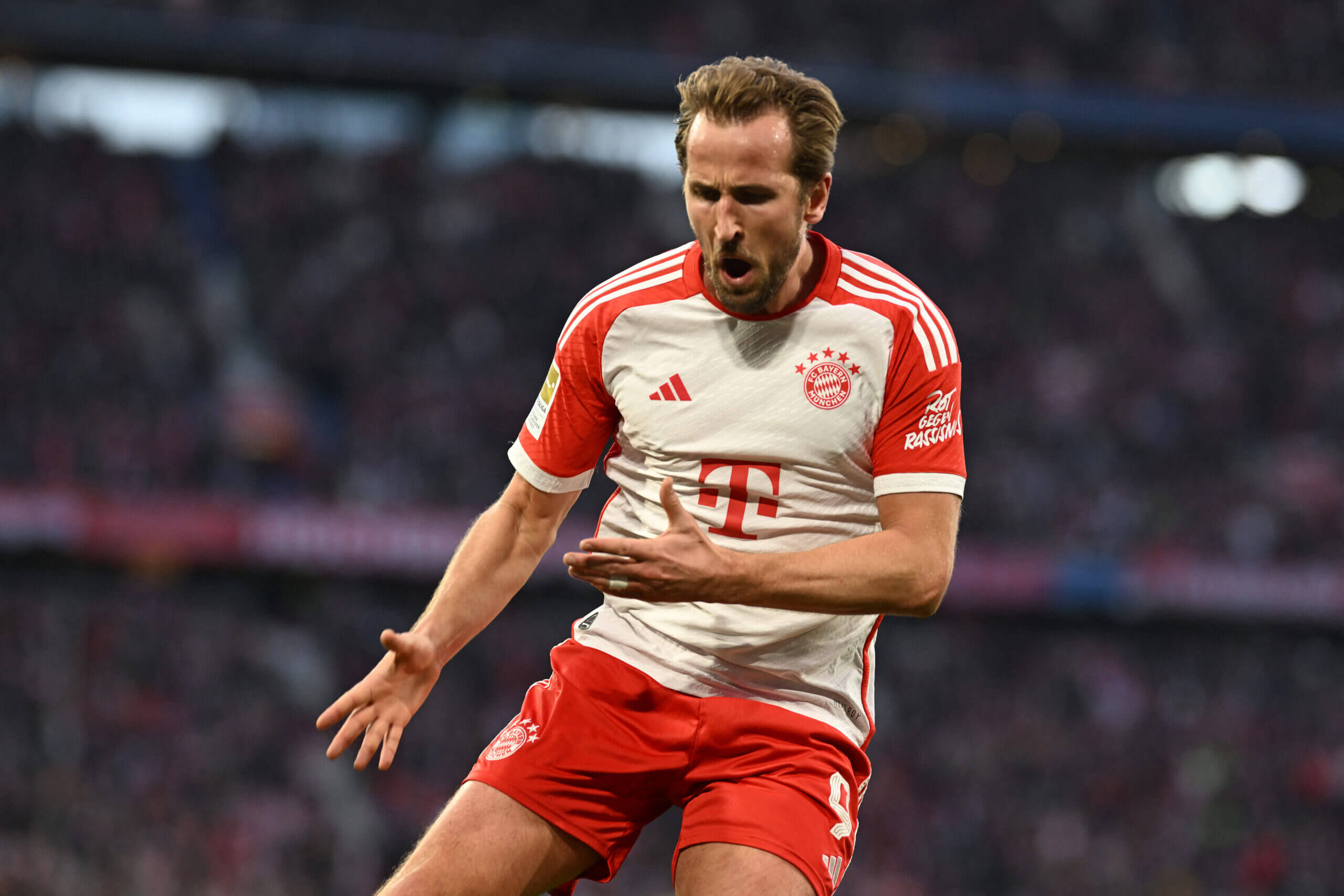
Harry Kane, one of the Bundesliga’s most marketable assets (Getty Images)
DAZN is majority-owned by Access Industries, the conglomerate created by Ukraine-born British-American billionaire Len Blavatnik. DAZN has lost billions since its launch in 2016, but those losses are coming down, as its revenues grow, and Blavatnik can afford it.
In a statement, the DFL told The Athletic it had not made “any errors” in its current auction.
“DAZN’s allegations are inaccurate and are rejected by the DFL,” it said, before adding that its confidentiality rules, as signed by all parties, including DAZN, meant it would be making no further comment.
Fair enough, but the matter has now gone to Germany’s Federal Cartel Office and the Bundesliga’s rights auction is on hold until the regulator has its say.
A DAZN spokesperson told us the company “has concerns with elements of the process and has raised these issues directly with the DFL”, but “remains committed to delivering value for the Bundesliga, its member clubs and their fans”. It also does not want to say any more on this topic at this stage.
DAZN’s coverage of German football has received some criticism. There have been technical issues, it has raised its prices four times and there have been grumbles about the addition of adverts and a betting product.
But Sky Deutschland has not been winning many profitability prizes recently either and is widely believed to be up for sale. Some (more cynical types than us) might suggest it is in the DFL’s interest to help out its Sky Deutschland brothers at the moment, as the last thing any rights-holder needs is an auction with only one bidder.
Meanwhile, DAZN is also trying to buy Ligue 1 rights in France, but that auction has been completely shelved because nobody bid enough for the packages. That was six months ago.
Perhaps the Premier League should sell every league’s media rights. It is really good at it.
Speaking of misadventures abroad, there is a mess at Vitesse Arnhem, where a takeover of the Dutch side appears to be a bridge too far for the Common Group, a New York-based investment firm.
One of the Netherlands’ oldest clubs, Vitesse have a proud history of developing players but are on the verge of relegation to Dutch football’s second tier after a miserable season.
But the on-field problems reflect the chaos off the pitch, as the sale to Common Group, first mooted two years ago, was rejected by the Dutch FA’s licensing committee in February, leaving the loss-making club in limbo.
If you are wondering why it took the independent panel so long to block the takeover, so is Common Group’s boss Coley Parry, whose loans have been propping the club up these last two seasons and now total €15million (£12.8m; $16m).
Parry, whose firm also owns stakes in Belgian second-tier side K Patro Eisden Maasmechelen, League One’s Leyton Orient and sports data firm StatsBomb, believes the licensing committee has put him in an impossible position by asking him to prove a negative — in this case, that he is not linked to sanctioned Russian oligarch and former Chelsea owner Roman Abramovich.
Confused? Well, Vitesse are probably best known outside the Netherlands for their friendship with Abramovich-era Chelsea. Between 2010 and 2022, the Premier League side loaned 29 players to the Dutch side, including Tammy Abraham, Mason Mount and Dominic Solanke.
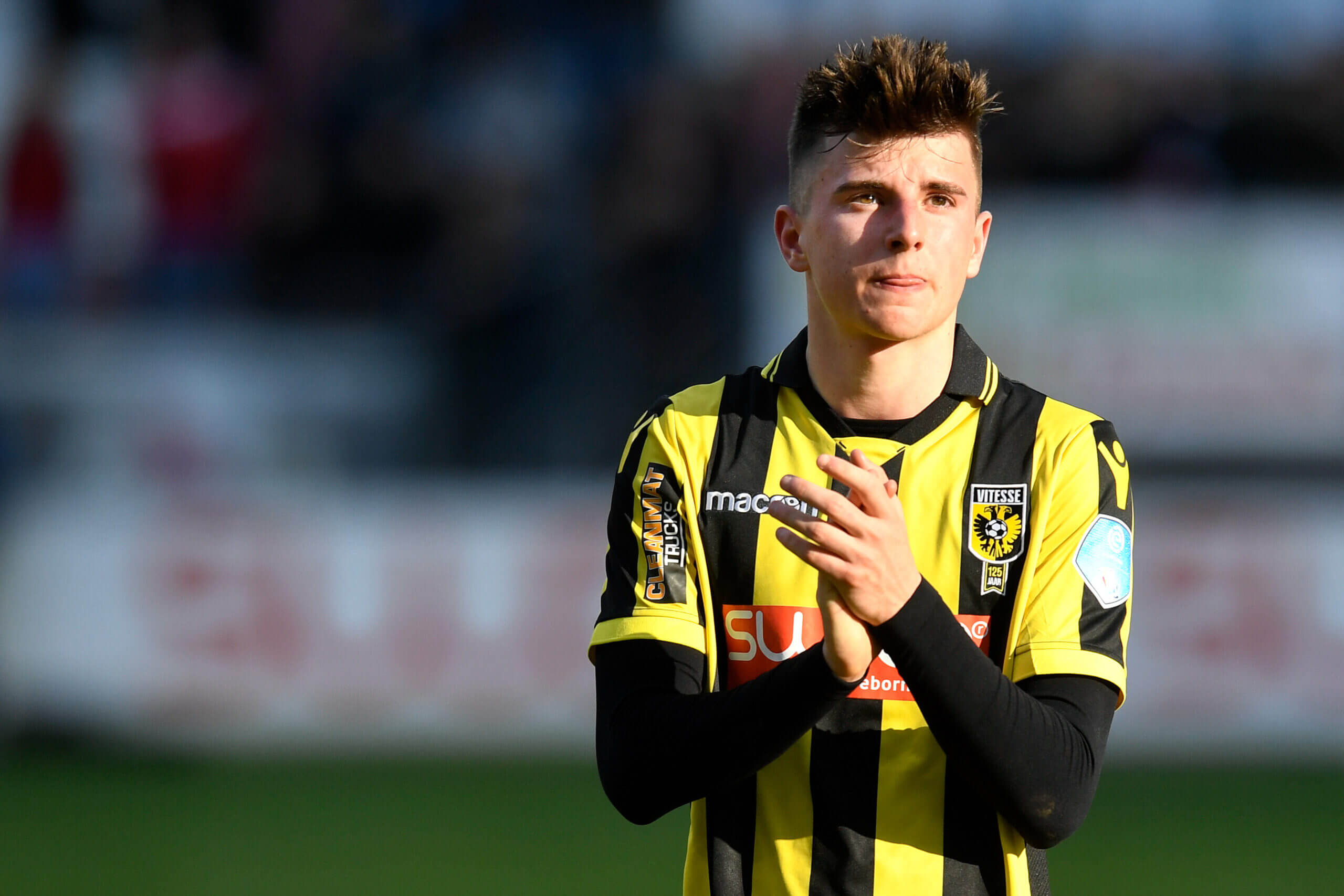
Mount played for Vitesse in the 2017-18 season (Angelo Blankespoor/Soccrates/Getty Images)
While their rivals mocked them for being ‘Chelsea B’, the link with London enabled Vitesse to compete in the top half of the Eredivisie for a decade, play in Europe and reach two Dutch cup finals, winning one in 2017.
A Dutch FA investigation into the relationship in 2014 cleared Vitesse of any wrongdoing, but the issue was reopened last year when British newspaper The Guardian and the Bureau of Investigative Journalism uncovered links between the club’s British Virgin Islands-registered parent company and Abramovich. So, the Dutch FA started another investigation and we are awaiting its publication. The two teams have previously denied that Abramovich was involved in funding Vitesse.
Parry’s 2022 deal was with Valeriy Oyf, the Russian businessman who bought the club from Abramovich ally Alexander Chigirinsky in 2018. Parry has told The Athletic that the fact he agreed that deal was enough for him to be considered suspicious by the licensing committee, although he also believes the licensing committee does not like multi-club investors and the row with him has become personal.
When asked about this by The Athletic, the Dutch FA declined to comment on the specifics but directed us to the statement it published in February that said Common Group had not shown who its investors were, how much money they had or where it came from. Parry disputes this and has complained to the Dutch Ministry of Economic Affairs.
In the meantime, Parry has become the pantomime villain in Arnhem, a situation he finds deeply frustrating as he believes he has done nothing but present Vitesse and the Dutch FA with proposals to solve the standoff.
The irony is that if he had found three friends to do this deal with him, he would have been fine, as the licensing committee only vets shareholders who are taking more than 25 per cent of a club.
This is the approach American-Chinese entrepreneur Chien Lee and his American business partner Paul Conway have just taken at Den Bosch, where the multi-club investors have sold the second-tier side to Chinese businessman Eric Li Ying, Dutch-based investor Eddie Tao and two unnamed Chinese partners.
That sale reduced the stable of clubs owned or co-owned by Chien Lee and Conway to a modest seven. Den Bosch’s new owners, on the other hand, are keen to grow and have recently been in talks to buy Beerschot, the Belgian side that is part of the Sheffield United-led group of clubs owned by Saudi Arabia’s Prince Abdullah bin Mosaad Al Saud.
Those talks, however, have stalled as Beerschot’s push for promotion to the top division has made the prince wonder if they might be worth a bit more than he originally estimated.
So, we begin and end with takeover sagas involving mounting debts, regulatory confusion and multi-club investors.
But remember, football without fans is nothing. Just keep telling yourself that.
(Top photo: Catherine Ivill/Getty Images)
